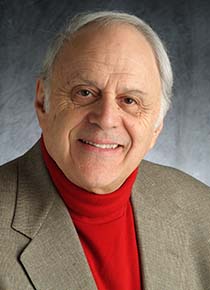
This will be a partly historical journey that will take you back to the realization of an idea to build one instrument for physics students to challenge in the advanced laboratory setting, and ended up creating both a manufacturing company and a not-for-profit foundation dedicated to enhancing advanced experimental physics education. I will be demonstrating TeachSpins' newest apparatus and discussing how we decide what instruments to create, and what "intellectual phase space" they must span. The moral of this saga is that retirement is vastly overrated.
Bio
As the first President of the Foundation and continuing CEO of TeachSpin, Jonathan hopes to set the course of both institutions for a long and fruitful future of supporting the wide-ranging advanced laboratory programs he believes should be the 'birthright' of every physicist.
Jonathan began his physics career at Case Institute of Technology, graduating with a dual degree in physics and astronomy and going on for a Ph.D. in physics at Washington University, St. Louis. For him, the laboratory was the place where all the theory came alive and he loved building apparatus that could help push the edge of understanding. After a post doc at Harvard, with Nobel Laureate Nico Bloembergen, he went on to a teaching and research career that went from Western Reserve, to Case-Western Reserve, and then to the University at Buffalo. At Buffalo, he 'experimented' with classroom techniques involving both in class participation and group work that had the flavor of what is currently called 'peer instruction'. In addition to writing textbooks that radically rearranged the introductory curriculum, he also took charge of organizing and building apparatus for the upper level labs.
